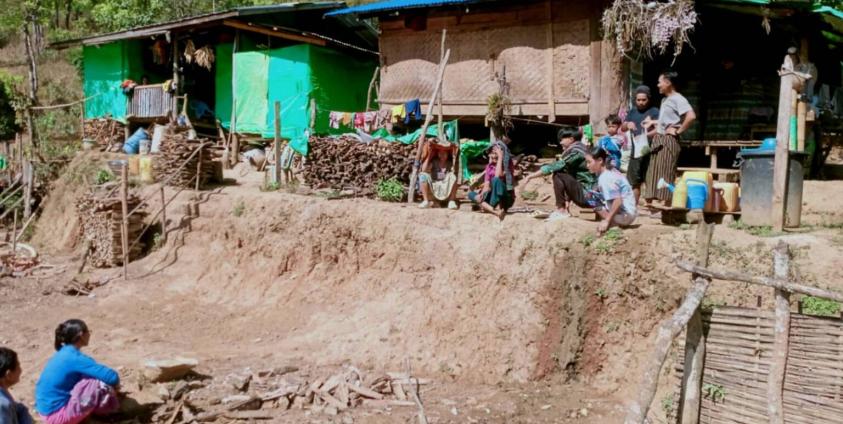Displaced people in Demoso Township, Karenni State, are facing shortages of basic food supplies, including rice. Many are relying on loans from relatives and friends to support their daily lives.
Residents of the Kantharyar displacement camp, originally from a village in Demoso Township, are unable to return home and resume farming due to ongoing conflict. As a result, they just have to depend on donations from humanitarian organizations, according to Daw Mu, a representative from the Kantharyar IDP Committee.
“Every household is struggling. People keep saying they have nothing left. The displaced have no jobs and no work opportunities. They are just surviving like this by relying on donations,” Daw Mu explained.
There are more than 100 people in Kantharyar IDP camp and most of them are children under 18.
This is the second time in nearly four years of displacement that they have faced rice shortages. It has been over a month that people have to reduce their food intake, according to Daw Mu.
During their time in displacement, some IDPs have managed to rent land from local landowners to grow crops. However, many, especially those in the Kantharyar camp, have no land access and heavily depend on humanitarian aid, according to the ground source of Kantarawaddy Times.
To address food shortages, some IDPs have tried growing winter crops such as onions and mustard greens, but only a small number of people have been able to do so.
“When visiting IDP camps from west of Demoso, some displaced people who could return home to plant rice seem to have enough to eat. However, those who cannot return due to the ongoing conflicts are borrowing money or seeking rice donations,” a Kantarawaddy Times field reporter noted.
Since the military coup, ongoing battles in Karenni State have caused more than 200,000 people to be displaced, out of an estimated population of 300,000. With limited job opportunities and reduced support from humanitarian organizations, food insecurity remains a major challenge for displaced communities, according to aid workers.







